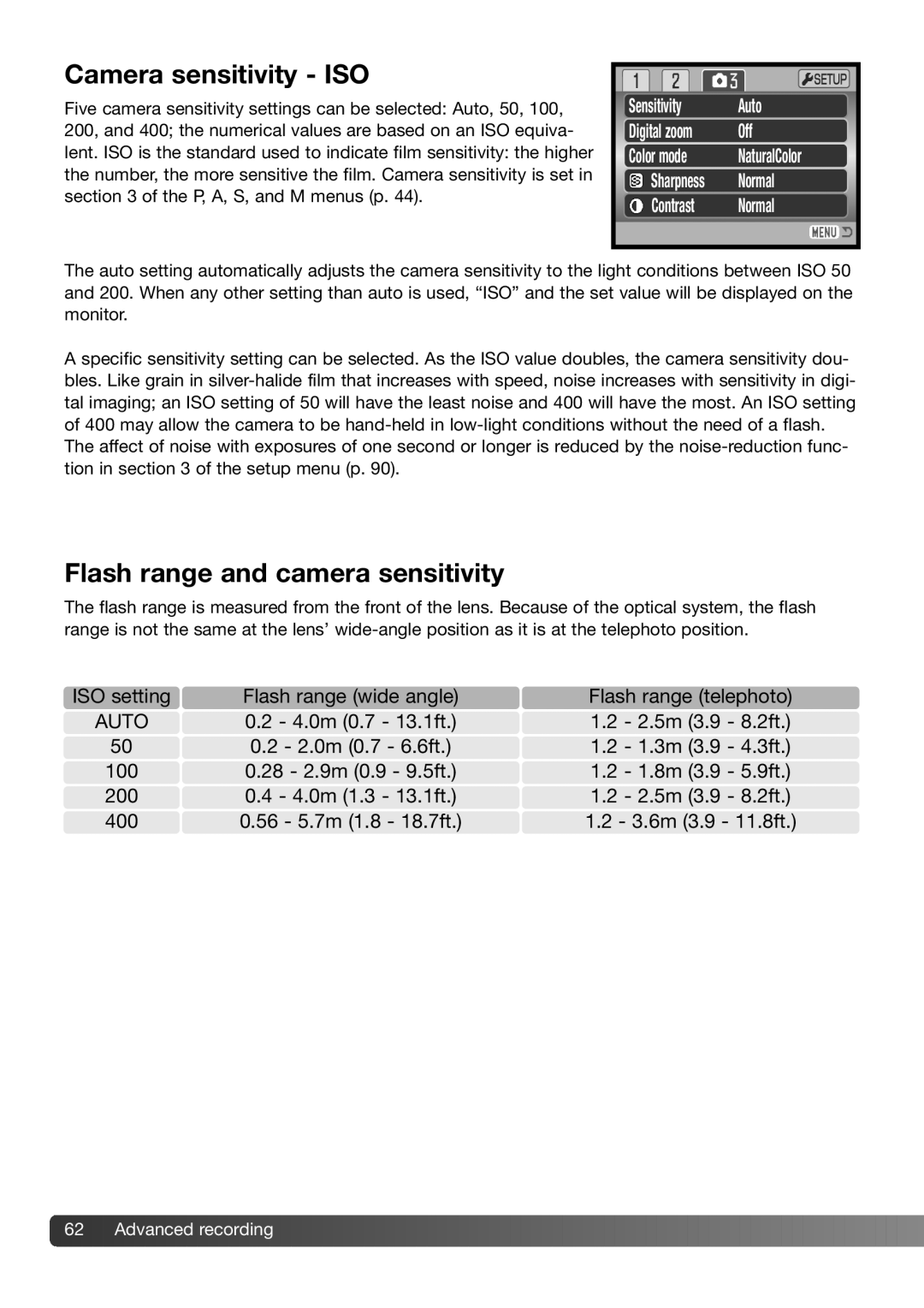
Camera sensitivity - ISO
Five camera sensitivity settings can be selected: Auto, 50, 100, 200, and 400; the numerical values are based on an ISO equiva- lent. ISO is the standard used to indicate film sensitivity: the higher the number, the more sensitive the film. Camera sensitivity is set in section 3 of the P, A, S, and M menus (p. 44).
Sensitivity | Auto |
Digital zoom | Off |
Color mode | NaturalColor |
Sharpness | Normal |
Contrast | Normal |
The auto setting automatically adjusts the camera sensitivity to the light conditions between ISO 50 and 200. When any other setting than auto is used, “ISO” and the set value will be displayed on the monitor.
A specific sensitivity setting can be selected. As the ISO value doubles, the camera sensitivity dou- bles. Like grain in
The affect of noise with exposures of one second or longer is reduced by the
Flash range and camera sensitivity
The flash range is measured from the front of the lens. Because of the optical system, the flash range is not the same at the lens’
ISO setting | Flash range (wide angle) | Flash range (telephoto) |
AUTO | 0.2 - 4.0m (0.7 - 13.1ft.) | 1.2 - 2.5m (3.9 - 8.2ft.) |
50 | 0.2 - 2.0m (0.7 - 6.6ft.) | 1.2 - 1.3m (3.9 - 4.3ft.) |
100 | 0.28 - 2.9m (0.9 - 9.5ft.) | 1.2 - 1.8m (3.9 - 5.9ft.) |
200 | 0.4 - 4.0m (1.3 - 13.1ft.) | 1.2 - 2.5m (3.9 - 8.2ft.) |
400 | 0.56 - 5.7m (1.8 - 18.7ft.) | 1.2 - 3.6m (3.9 - 11.8ft.) |
![]() 62
62![]()
![]() Advanced recording
Advanced recording![]()
![]()
![]()
![]()
![]()
![]()
![]()
![]()
![]()
![]()
![]()
![]()
![]()
![]()
![]()
![]()
![]()
![]()
![]()
![]()
![]()
![]()
![]()
![]()
![]()
![]()
![]()
![]()
![]()
![]()
![]()
![]()
![]()
![]()
![]()
![]()
![]()
![]()
![]()
![]()
![]()
![]()
